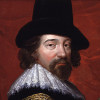“ Of ambitions, it is less harmful, the ambition to prevail in great things, than that other, to appear in every thing; for that breeds confusion, and mars business. But yet it is less danger, to have an ambitious man stirring in business, than great in dependences. He that seeketh to be eminent amongst able men, hath a great task; but that is ever good for the public. ”
Francis Bacon, The Essays of Francis Bacon (1597). copy citation
| Author | Francis Bacon |
|---|---|
| Source | The Essays of Francis Bacon |
| Topic | danger confusion |
| Date | 1597 |
| Language | English |
| Reference | |
| Note | |
| Weblink | http://www.gutenberg.org/files/575/575-h/575-h.htm |
Context
“As for the pulling of them down, if the affairs require it, and that it may not be done with safety suddenly, the only way is the interchange, continually, of favors and disgraces; whereby they may not know what to expect, and be, as it were, in a wood. Of ambitions, it is less harmful, the ambition to prevail in great things, than that other, to appear in every thing; for that breeds confusion, and mars business. But yet it is less danger, to have an ambitious man stirring in business, than great in dependences. He that seeketh to be eminent amongst able men, hath a great task; but that is ever good for the public. But he, that plots to be the only figure amongst ciphers, is the decay of a whole age. Honor hath three things in it: the vantage ground to do good; the approach to kings and principal persons; and the raising of a man's own fortunes.”
source

